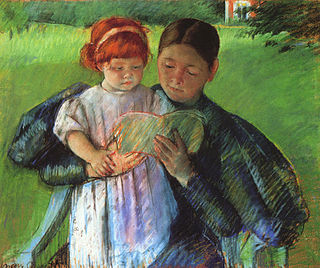Overtime is the amount of time someone works beyond normal working hours. The term is also used for the pay received for this time. Normal hours may be determined in several ways:

Working time or laboring time is the period of time that a person spends at paid labor. Unpaid labor such as personal housework or caring for children or pets is not considered part of the working week.
Flextime is a flexible hours schedule that allows workers to alter their workday and adjust their start and finish times. In contrast to traditional work arrangements that require employees to work a standard 9 a.m. to 5 p.m. day, Flextime typically involves a "core" period of the day during which employees are required to be at work, and a "bandwidth" period within which all required hours must be worked. The working day outside of the core period is "flexible time", in which employees can choose when they work, subject to achieving total daily, weekly or monthly hours within the bandwidth period set by employers, and subject to the necessary work being done. The total working time required of employees on an approved Flextime schedule is much the same as those who work under traditional work schedule regimes.
Shift work is an employment practice designed to keep a service or production line operational at all times. The practice typically sees the day divided into shifts, set periods of time during which different groups of workers perform their duties. The term "shift work" includes both long-term night shifts and work schedules in which employees change or rotate shifts.

Babysitting is temporarily caring for a child. Babysitting can be a paid job for all ages; however, it is best known as a temporary activity for early teenagers who are not yet eligible for employment in the general economy. It provides autonomy from parental control and dispensable income, as well as an introduction to the techniques of childcare. It emerged as a social role for teenagers in the 1920s, and became especially important in suburban America in the 1950s and 1960s, when small children were abundant. It stimulated an outpouring of folk culture in the form of urban legends, pulp novels, and horror films.

A part-time job is a form of employment that carries fewer hours per week than a full-time job. Workers are commonly considered to be part-time if they work fewer than 30 hours per week. Their hours of work may be organised in shifts. The shifts are often rotational.
A full-time job is employment in which workers work a minimum number of hours defined as such by their employer.
The weekdays and weekend are the complementary parts of the week devoted to labour and rest, respectively. The legal weekdays, or workweek, is the part of the seven-day week devoted to working. In most of the world, the workweek is from Monday to Friday and the weekend is Saturday and Sunday. A weekday or workday is any day of the working week. Other institutions often follow this pattern, such as places of education. The constituted weekend has varying definitions, based on determined calendar days, designated period of time, and/or regional definition of the working week. Sometimes the term "weekend" is expanded to include the time after work hours on the last workday of the week. Weekdays and workdays can be further detailed in terms of working time, the period of time that an individual spends at paid occupational labor.
Permatemp is a U.S. term for a temporary employee who works for an extended period for a single staffing client. The word is a portmanteau of the words permanent and temporary.
A zero-hour contract is a type of employment contract in United Kingdom labour law, between an employer and an employee whereby the employer is not obliged to provide any minimum number of working hours to the employee.
The Employment Standards Act of British Columbia (Canada), is legislation enacted by the provincial government of British Columbia to protect the rights of working people. Sections within the act outline the employers responsibility to their employees, notably things such as minimum wage, meal breaks, and parental leave. The act also works to protect residents of the province by preventing employment discrimination.
Japanese labour law is the system of labour law operating in Japan.
Sick leave is paid time off from work that workers can use to stay home to address their health needs without losing pay. It differs from paid vacation time or time off work to deal with personal matters, because sick leave is intended for health-related purposes. Sick leave can include a mental health day and taking time away from work to go to a scheduled doctor's appointment. Some policies also allow paid sick time to be used to care for sick family members, or to address health and safety needs related to domestic violence or sexual assault. Menstrual leave is another type of time off work for a health-related reason, but it is not always paid.
The degree of labour market flexibility is the speed with which labour markets adapt to fluctuations and changes in society, the economy or production. This entails enabling labour markets to reach a continuous equilibrium determined by the intersection of the demand and supply curves.
The Labor Code of the Philippines is the legal code governing employment practices and labor relations in the Philippines. It was enacted through Presidential Decree No. 442 on Labor day, May 1, 1974, by President Ferdinand Marcos in the exercise of his then extant legislative powers.

A break at work is a period of time during a shift in which an employee is allowed to take time off from their job. It is a type of downtime. There are different types of breaks, and depending on the length and the employer's policies, the break may or may not be paid.

The California Labor Code, more formally known as "the Labor Code", is a collection of civil law statutes for the State of California. The code is made up of statutes which govern the general obligations and rights of persons within the jurisdiction of the State of California. The stated goal of the Department of Industrial Relations is to promote and develop the welfare of the wage earners of California, to improve their working conditions and to advance their opportunities for profitable employment."
The Labor policy in the Philippines is specified mainly by the country's Labor Code of the Philippines and through other labor laws. They cover 38 million Filipinos who belong to the labor force and to some extent, as well as overseas workers. They aim to address Filipino workers’ legal rights and their limitations with regard to the hiring process, working conditions, benefits, policymaking on labor within the company, activities, and relations with employees.

Wage theft is the failing to pay wages or provide employee benefits owed to an employee by contract or law. It can be conducted by employers in various ways, among them failing to pay overtime; violating minimum-wage laws; the misclassification of employees as independent contractors; illegal deductions in pay; forcing employees to work "off the clock"; not paying annual leave or holiday entitlements; or simply not paying an employee at all.
The shift plan, rota or roster is the central component of a shift schedule in shift work. The schedule includes considerations of shift overlap, shift change times and alignment with the clock, vacation, training, shift differentials, holidays, etc. The shift plan determines the sequence of work (W) and free (F) days within a shift system.





